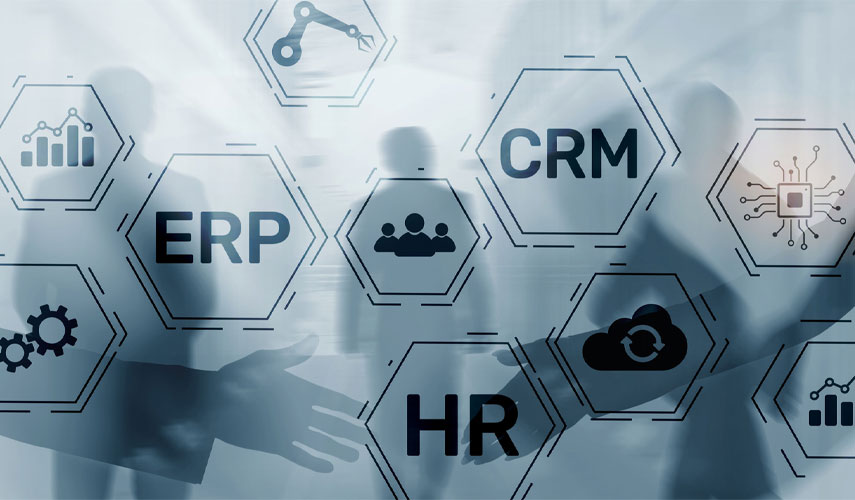
Enterprise Solutions
The Real Achilles’ Heel of ERP System Implementation Revealed
Modern enterprise resource planning (ERP) systems are driving transformation at colleges and universities across the nation. But implementing a new system can expose unexpected vulnerabilities.
According to EDUCAUSE’s new study of higher education ERP implementations, which CampusWorks sponsored, the top two challenges institutions encountered were related not to technology, but to people. Sixty percent of survey respondents identified “institutional culture and readiness for change” as their top challenge while 54% reported “leadership/staff resistance to change.”
This data tells a powerful story. While technology plays a crucial role in driving change and streamlining processes, it’s the human factor that demands unwavering focus throughout the entire ERP implementation journey.
In this article, we’ll explore key lessons that surfaced from institutions that completed an implementation in the past decade or are currently implementing a new ERP. And we’ll discuss what you can do to unite and engage your campus community throughout the implementation process, so they become your greatest strength.
Lesson #1. People, not technology, require the most attention.
The success of an ERP implementation heavily relies on the people involved. It’s essential to involve stakeholders from all areas of the institution throughout the ERP implementation journey, allowing them to voice their perspectives, co-create a shared vision for the future, and redesign processes to support that vision.
It’s also essential for campus community members to be supported throughout the process of change. According to EDUCAUSE’s survey data, “organizational readiness/change management plan” was ranked as the second most critical factor to an implementation’s success. This involves providing resources, training, and clear communications to help technology users learn and adopt new systems and processes.
Lesson #2. An ERP implementation is more than an IT project.
ERP systems affect all aspects of an institution, not just the IT department. Recognizing this, an ERP implementation should be seen as a comprehensive transformation of business processes. Involve representatives from different departments to help define the new system requirements, reimagine future state processes, and evaluate technology solutions. Their involvement will help ensure the implementation addresses each area’s specific needs and will minimize disruption and resistance.
Lesson #3. Leadership support and engagement are mission critical.
Strong commitment and engagement from institutional leadership are vital for the success of an ERP implementation. According to the survey data, 77% of institutions that have completed an implementation in the past decade and 75% of institutions that are currently implementing an ERP ranked “institutional leadership support” as the most critical factor to an implementation’s success.
Leadership support reinforces the project’s importance and creates a culture of accountability and collaboration. A transparent communication plan backed by leadership builds trust and engenders broad support from all levels of the organization.
Lesson #4. Sufficient staffing contributes to smoother implementation.
To achieve a timely implementation, organizations must address current and future staffing needs, which can be easier said than done in The Great Resignation era. This may involve backfilling key and vacant roles to support staff members who are involved in the implementation. Or, it may mean hiring an interim leader to bridge a leadership gap. Having sufficient resources goes a long way in minimizing stress and burnout and positioning the project team for success.
Lesson #5. Be intentional about managing change.
Change is hard, and an ERP implementation represents a significant organizational change. Establishing a “change champion team” with representatives from different departments can help facilitate effective communication and address concerns or questions from the wider community. Provide regular updates and focus on stakeholder engagement to foster a sense of involvement and ownership.
Lesson #6. Effective communication builds trust and support.
Clear and regular communication is vital during implementation. It keeps stakeholders informed about changes and the reasons behind them, addressing questions, concerns, and needs. Communication should be tailored to different audiences, emphasizing the new system’s benefits and positive impact on their work.
Lesson #7. Address culture issues throughout the process.
Institutional culture plays a significant role in the success of an ERP implementation. Proactively addressing culture issues before, during, and after the implementation ensures that the new system is embraced and adopted by all stakeholders. This requires ongoing efforts to promote a positive and supportive culture that aligns with the institution’s goals.
Lesson #8. Sustain leadership support beyond go-live.
Institutional leadership support is crucial not only during the implementation but also in the post-implementation phase. Continuous support and engagement from leadership, including the entire senior leadership team, ensures the new system’s benefits are fully realized and that ongoing improvements and optimizations are prioritized.
Lesson #9. Create a culture of continuous improvement.
Implementing an ERP system is not a one-time event but an ongoing process. Institutions should foster a culture of continuous improvement by establishing feedback and evaluation mechanisms, providing regular training and support, and remaining adaptable to evolving needs. This approach ensures that the ERP system remains aligned with the institution’s goals and can adapt to future challenges.
Looking Forward
ERP implementation requires careful attention to the human aspects of change, as well as effective leadership, communication, and a commitment to continuous improvement. By recognizing these lessons and embedding this advice in your next ERP project, your team will be poised to navigate the complexities of implementation and drive transformation at your institution.
Need help with ERP implementation? Not sure where to start? Conducting an ERP Assessment can be an informative first step.

